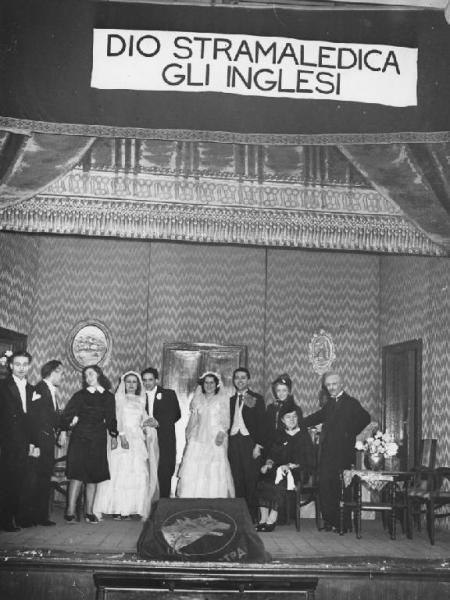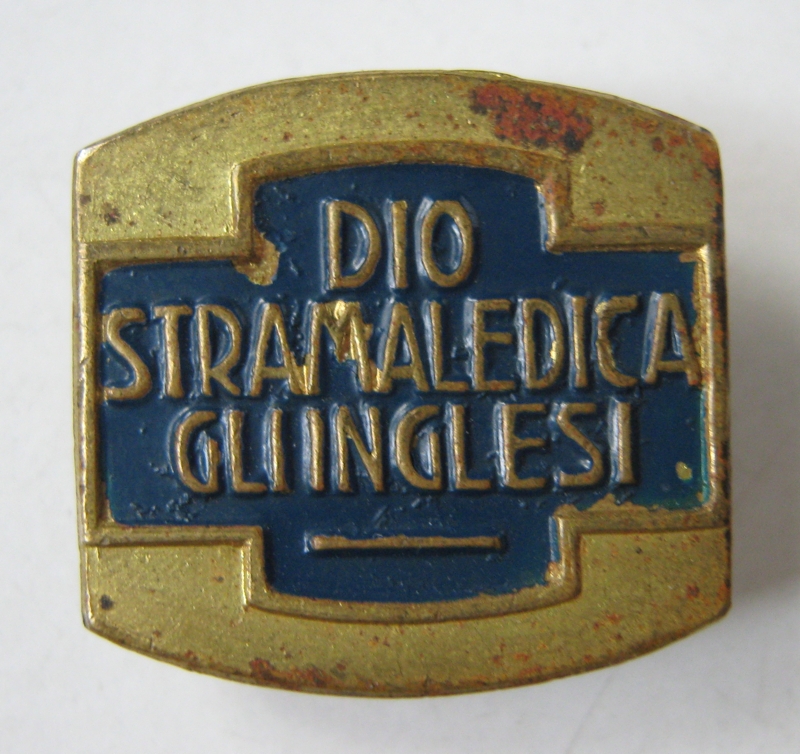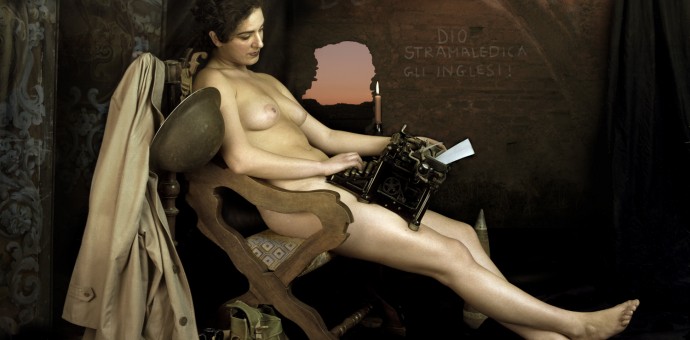Dio stramaledica gli Inglesi!
Sometimes I come back to a picture with a new idea, usually to add something – such are the wonders of Photoshop – despised I know by many purists but manna from heaven to someone like me who never knows when to stop.
In this case I have tinkered with a 2006 picture called Correspondent inspired by the 19thC French Painter Roussell. In the past I had already added the bombed out ruin as the background (actually a roofless Roman bath near Viterbo) and later on a copy of Picture Post from the war years that I picked up from a used bookseller in Charing Cross Road.
 Then I came across a picture in an Italian magazine of a theatre in wartime Milan with the inscription ‘Dio stramaledica gli Inglesi’ (God curse the English) suspended above the actors’ heads.
Then I came across a picture in an Italian magazine of a theatre in wartime Milan with the inscription ‘Dio stramaledica gli Inglesi’ (God curse the English) suspended above the actors’ heads.
The slogan was coined by enthusiastic fascist and anti-semitic journalist Mario Appelius.
In fact it was the catch phrase with which he signed off his radio broadcasts. On one such programme he harangued the British, Churchill and the RAF for bombing soft, easy to hit targets, “Why don’t you try and bomb somewhere really difficult’, he ranted, “like the port of La Spezia!”
This unwise utterance did not improve his popularity with wavering supporters of the regime or the inhabitants of La Spezia, the harbour was bombed shortly after and struck repeatedly till the end of the war.
 fascist badge
fascist badge
Mussolini’s regime was fond of plastering slogans such as this one everywhere, at the entrance to towns, on farm buildings, stations and air raid shelters.
An ubiquitous one was: Credere Obbedire Combattere – VINCERE! (Believe Obey Fight – WIN!). Many though faded, some almost beyond recognition still survive.
Appelius was tried and convicted after the war as an apologist for fascism, but avoided incarceration under the terms of an amnesty.
Aside from sloganising and cursing the English, Mussolini, who was usually referred to as Duce, purged Italian of English.
The Futurist artist Marinetti and the poet d’Annunzio were among those who volunteered to dream up alternatives: sandwich became traidue; Bridge became Ponte; club, consociazione; cocktail, arlecchino; even bar yielded to the tortuous qui si beve. The term chiave inglese (lit. English key) for spanner was substitued with chiave morsa.
Some Italianised words such as calcio (football) have survived but on the whole this has been another battle lost.

